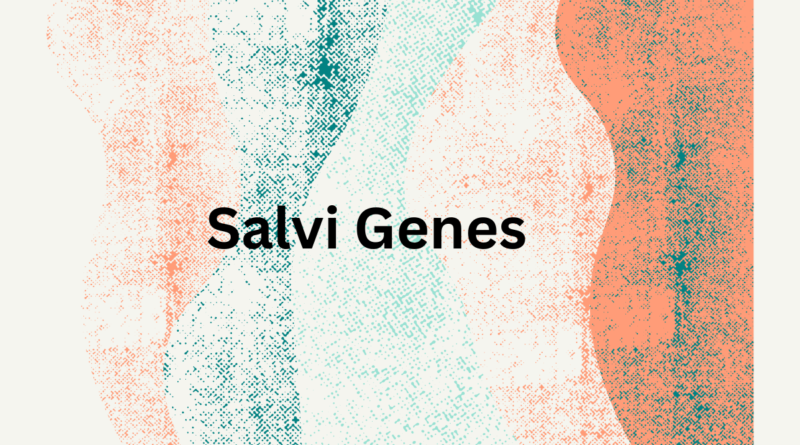A Look at the Part Salvi Genes Play in Hearing Loss Caused by Aging
Introduction
Age-related hearing loss, or ARHL, is a common disease that affects a lot of older people and makes their lives less enjoyable. A lot of study has been done on the genetic basis of ARHL, with the main goal of figuring out how genetic differences affect this disease. Salvi genes have become important parts of the genetic environment of ARHL among the genes that have been studied. This piece talks about the role of Salvi genes, how they are linked to hearing loss that comes with getting older, and what researchers have learned from different studies.
Salvi Genes and What They Do
Hearing and the health of auditory cells are linked to Salvi genes, which were named after the researchers Salvi and his friends. These genes make proteins that help cells do many things, like responding to stress, staying alive, and death. The Galactinol Synthase gene (GOLS) is one of the most important genes in this case because it is a key part of the stress response pathways.
How the Salvi gene works and how it works
To figure out how Salvi genes affect hearing, we need to look into the biological processes that make this happen. It is known that Salvi genes play a role in cellular stress reactions, which are very important for keeping auditory cells healthy. One example is Galactinol Synthase (GOLS), which helps protect cells from reactive stress by making galactinol. Researchers can better explain how disruptions in these pathways lead to hearing loss if they understand these processes.
Also Read: Chad Ames Obituary Syracuse NY: Honoring an Extraordinary Life
What Functional Genomics Can Teach Us
Studies that use functional genomics can tell us a lot about how Salvi genes affect hearing health. Scientists have used tools like RNA interference and gene knockout models to look into how changes in certain Salvi genes affect the function and survival of cells in the inner ear. According to these studies, some variations in the Salvi gene make cells more likely to die, which can lead to hearing loss. This practical view is very important for finding possible therapeutic targets.
What Abiotic Stress Does to Salvi Gene Expression
Abiotic stress, like drought or very high or low temperatures, can change how Salvi genes are expressed. For example, Salvi genes that help plants deal with stress are very important for keeping them growing and working even when things are bad. Stress reactions controlled by Salvi genes may also help protect auditory cells from environmental and physiological stresses that make age-related hearing loss worse. Looking into these reactions to stress helps us understand what the Salvi gene function means in a wider range of situations.
What Part Salvi Genes Play in Different Stages of Development
Salvi genes play different roles at different times of development, which can change how they affect hearing loss. The expression and function of these genes can change a lot at different times of hearing development. Studies of different stages of development have shown that problems with the Salvi gene during important times can affect hearing in the future. To find important times to possibly intervene, it’s necessary to understand these developmental features.
Translational research and what it means for patients
The results of research on the Salvi gene have important clinical consequences. Translational study tries to connect basic science with real-world use in order to create new ways to diagnose and treat hearing loss that comes with getting older. By finding specific Salvi gene variants linked to hearing loss, scientists can create genetic tests to figure out a person’s risk and make treatments more effective. Additionally, therapeutic methods that focus on the pathways controlled by Salvi genes may open up new ways to stop or lessen hearing loss.
Problems and Plans for the Future in Salvi Gene Research
Salvi gene study has made some progress, but there are still some problems that need to be fixed. Some of these are the need for bigger and more varied study groups to confirm results, the fact that gene-environment interactions are complicated, and the fact that genetic data needs to be linked to clinical outcomes. In the future, scientists will try to solve these problems by using cutting-edge genetic technologies, studying how genes interact with each other, and making better models to learn more about how Salvi genes cause hearing loss.
Genetic Variants and Hearing Loss: Key Findings from New Research
Rare variants new studies have found that some rare variations in the Salvi genes are linked to a higher chance of hearing loss that comes with getting older. A lot of the time, these variants change important processes that control how cells respond to stress and die (apoptosis). Common Changes Along with rare variants, common DNA variants in Salvi genes have been linked to differences in how likely someone is to lose their hearing. These variations help make ARHL more likely to be passed down and give us information about how the disease is genetically prone to happening.
Studies of gene expression and function
Expression Analysis gene expression studies using microarray datasets and RNA analysis have shown that people with ARHL have different levels of expression of Salvi genes. This different expression is often linked to different stages of growth and how cells react to abiotic stresses.Functional Studies study with model organisms like mice and maize has shown that changes in Salvi genes can make auditory cells not work right. The purpose of these studies is to help us understand how these genes keep our hearing working.
Studies of associations and replication
Studies that look at links between genes GWAS studies have found strong links between Salvi gene variants and hearing loss that comes with getting older. The results of these studies give us a full picture of how genetic differences affect the formation of ARHL.Studies That Repeat The links found in the first discovery samples have been supported by replication studies using secondary samples. This repetition is very important for confirming the genetic links and making sure that the results are strong.
Conclusion
The study on Salvi genes has helped us learn a lot more about the genetic factors that cause hearing loss with age. Finding both rare and widespread variants as well as functional and association studies shows how important these genes are for hearing health. As study goes on, these genetic insights should lead to the creation of new treatment plans and interventions that will help lessen the effects of hearing loss that comes with getting older.
Also Read: Page 139 Icebreakers: Unleashing the Amazing Power of Team Connection
FAQs
What are Salvi genes? Why are they important?
Salvi genes play a part in controlling hearing and keeping hearing cells healthy. They are very important for figuring out how genes cause hearing loss with age and help scientists come up with possible solutions.
How do differences in the Salvi genes cause hearing loss?
Differences in Salvi genes can mess up important cellular processes like apoptosis and stress reactions, which are needed to keep hearing working. These problems can raise the chance of getting hearing loss with age.
What are the main ways that Salvi genes are studied?
Genome-wide association studies (GWAS), gene expression analysis using microarrays and RNA sequencing, and functional studies in model organisms like mice are some of the most important tools. These methods help find connections and figure out what part Salvi genes play in hearing loss.
How accurate are the results of the study on the Salvi gene?
When the same results show up in more than one study and group, we say that the results are reliable. Replication studies back up the first findings and show that the genetic links to age-related hearing loss are strong.
Where do you think studies on Salvi genes will go in the future?
In the future, scientists will try to learn more about how Salvi genes work, find possible therapeutic targets, and see how these genes combine with other factors that affect hearing loss that comes with getting older.
This summary looks at the role of Salvi genes in age-related hearing loss in a broad way. It gives us a better understanding of their genetic effects and opens the door for more study and better treatments in the future.




